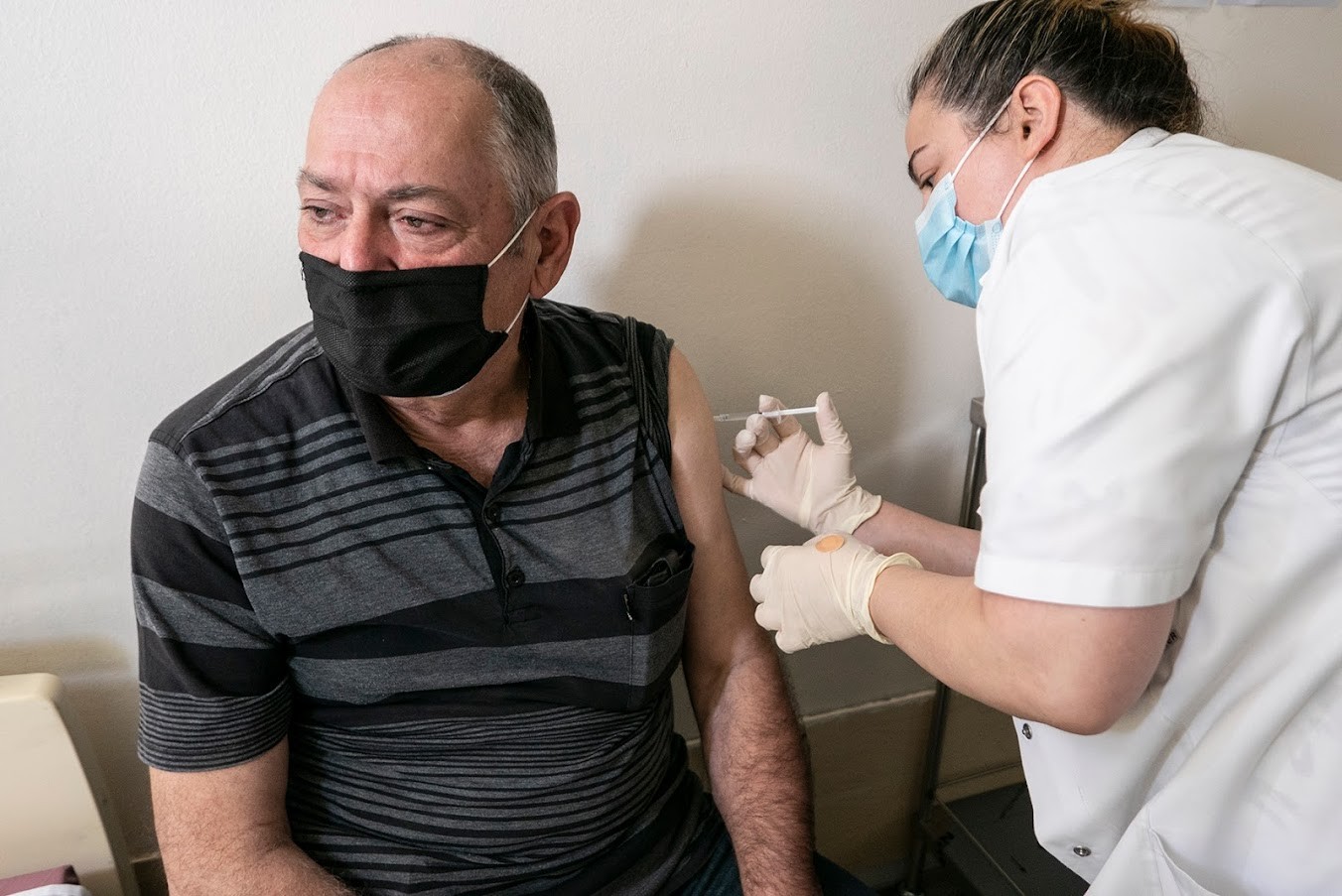
All foreigners staying in Georgia, all those residing in Abkhazia and South Ossetia irrespective of their citizenship, and all prison inmates are now eligible for COVID-19 vaccines.
According to the order of Georgian Health Minister Ekaterine Tikaradze on 22 July, all foreign citizens who have legally entered Georgia and have stayed for a period longer than three months are entitled to register to receive vaccination against COVID-19.
Foreign students that have overstayed their visa in Georgia due to the pandemic, will be eligible through their host educational institutions in Georgia.
Those to be allowed to get vaccinated also include the staff and relatives of the foreign diplomatic corps in Georgia, employees of ‘international organisations’, as well as any foreigners in Georgia’s penitentiary system including those without identification documents.
According to the Health Ministry’s decision, the ‘population living in the occupied territories [South Ossetia and Abkhazia], regardless of their citizenship’ will also be given the chance to receive an anti-COVID-19 inoculation.
The long-awaited decision came months after the Georgian authorities unveiled the country’s mass inoculation national plan last December, which allowed only citizens and those holding residence permits to vaccinate.
Since May, OC Media has repeatedly inquired about the matter with Georgia’s National Centre for Disease Control (NCDC). On 9 June, NCDC Director Amiran Gamkrelidze confirmed to OC Media that they were working on the issue within the anti-coronavirus vaccination implementation inter-agency council.
According to local health authorities, Georgia is currently entering what they refer to as the ‘fourth wave’ of the COVID-19 pandemic. Daily cases are now over 2,000, and as of 22 June the weekly positive test rate has reached 5.78%. The new wave follows a relaxation of anti-COVID-19 measures in June, as well as the global spread of the aggressive Delta variant.









